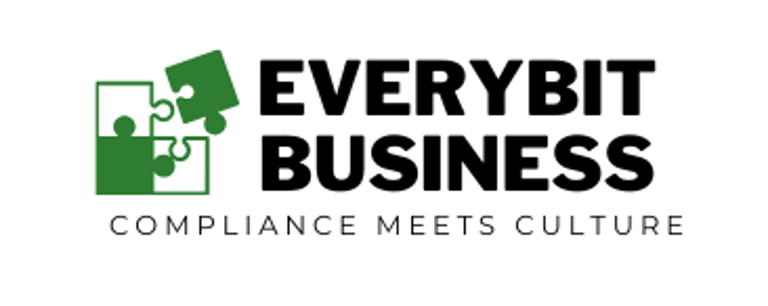When Accountability Meets Drama
The Curious Case of the Painted Walls
DEAR HR DIARY


This week, I witnessed something straight out of a workplace soap opera. Let's call it "The Case of the Painted Walls."
A senior manager—we'll name her Marysol—found herself caught in what should have been a minor misunderstanding. Unfortunately, instead of taking ownership, she took the scenic route through Denial Roundabout, Deflection Street, and Drama Road.
Here's how it unfolded. And if you've managed people, you'll recognize this story instantly.
Scene One: The Mystery of the Walls
The CEO approached me one morning.
"Claudia," he said, "Did you tell Marysol that company policy requires us to... paint the walls?"
(We'll use 'painting walls' as our placeholder—confidentiality and all that. But trust me, this happens with everything from budget approvals to client communications.)
Me: "No, I don't recall saying that."
CEO: shows me a message from Marysol clearly stating I said exactly that.
(Internal Claudia: "Interesting. Because I would definitely remember saying something I... didn't say.")
I suggest we clarify directly, so the CEO calls her in. Simple, right? Just clear up the confusion and move on?
Reader, it was not simple.
Scene Two: The Performance
CEO: "Marysol, you said Claudia told you to paint the walls. She says she didn't. Can you help us understand what happened?"
Marysol: "Well, remember when we spoke about cooking... and then the beef?"
CEO: "The beef?"
Marysol: "Yes, the beef. It was cooked. But later when we discussed the walls, I didn't say she said that."
(Internal Claudia: "The beef was cooked. We're having a beef status update. In a meeting about walls. Are we still talking about walls? Were we ever talking about walls? Stay neutral. Breathe.")
At this point, the CEO reads her exact text message aloud—the one where she explicitly attributes the directive to me.
Marysol's tone changes instantly. Arms fold. Posture straightens. The defensive machinery activates.
Marysol: "But wait—remember after I said that, the following text clarified that I may have misunderstood Claudia?"
(Internal Claudia: "Interesting. The message in front of us contains no such clarification. But let's see where this goes.")
The CEO glances at the message again. "I'm not seeing that clarification here."
The script pivots seamlessly to Marysol saying:
"Why did you tell her what I said? HR shouldn't be involved!"
"If you don't want me working for this company, just say so!"
"After everything I've done for this place!"
And then, the tears.
(Internal Claudia: "Ah yes, we've moved from Act One: Confusion, straight past Act Two: Clarification, and landed directly in Act Three: Catastrophic Misunderstanding.
Now I'm getting the classics: 'If you don't want me here, just say so'—which translates to 'I don't want to discuss what I actually said.' Then 'After all I've done for this company'—translation: 'My past contributions should exempt me from current accountability.' And the grand finale: 'Why did you involve HR?'—meaning 'Witnesses make it harder to rewrite this story. '
If only workplace conversations came with subtitles. Would save everyone so much time. And probably some Panadol.")
I sipped my water slowly—the universal HR signal for "I'm buying time to choose my words very, very carefully"—and whispered to my professional soul: "We are officially in the Theatre of Avoidance.
The Psychology Behind the Drama
As HR professionals working with Kenyan SMEs, we've all met a "Marysol"—someone who, when confronted with an uncomfortable truth, detours through drama instead of ownership.
Psychologists call this defensive projection—the mind's way of protecting self-image by redirecting blame outward. In Kenyan workplaces, it shows up as emotional outbursts during accountability moments, shifting focus from facts to feelings, or bringing up unrelated past incidents to muddy the current issue.
According to Amy Edmondson's research in The Fearless Organization, high-performing teams thrive when psychological safety and accountability coexist. When people feel safe enough to admit mistakes and responsible enough to correct them, trust deepens and performance improves. Unfortunately, emotional theatrics replace that trust with tension.
How Kenyan HR Leaders Should Handle It
So, how do we navigate situations where accountability meets emotional manipulation? Here's what actually works in practice:
Stay calm—don't match the drama - If emotions rise, lower your tone. You can't de-escalate fire with fire. Calmness is contagious and re-centers the conversation. I've seen Kenyan managers lose credibility by matching an employee's energy level—suddenly you're both yelling and no one's listening.
Bring the focus back to facts - Acknowledge the emotion without validating the deflection: "I understand this feels frustrating, but let's review what was actually said so we can clarify together." Facts are neutral ground.
Document everything. Always - Conversations fade; written facts don't. In Kenya's employment landscape, documentation protects fairness, memory, and legal compliance. This isn't about building a case against someone—it's about maintaining clarity for everyone involved.
Separate the behavior from the person - "You're being dishonest" triggers defensiveness. "The information shared doesn't match our records" addresses the issue without attacking character.
Coach for emotional intelligence. The World Economic Forum ranks EQ among the top 10 essential workplace skills, with organizations reporting measurable productivity gains from EQ training. In Kenyan SMEs where resources are tight, this investment delivers ROI through reduced conflict and improved team cohesion.
"But She's Our Best Performer" — The Talent Trap
Here's where most Kenyan business owners hesitate. Marysol isn't just any employee—she's skilled, experienced, and hard to replace.
The problem: When high performers get away with emotional manipulation, your team notices. If drama works as a deflection tactic, others will try it. Performance without integrity becomes a liability.
What works instead:
Address the behavior immediately and privately
Be clear about expectations moving forward
Offer support (coaching, EQ training) while maintaining boundaries
Document everything—including the support you offered
Great performers can learn emotional regulation. But they won't if drama keeps working as a strategy.
The Resolution: What Happened to Marysol
After the emotional outburst subsided, we did what HR professionals do—we brought it back to facts and forward motion.
The CEO and I met with Marysol the following day. Calmer. Documented. Clear.
We acknowledged her feelings, but clarified that facts weren't negotiable. We reviewed the messages together, identified where miscommunication happened, and explained why attributing statements to others creates organizational confusion.
We offered coaching support and made clear that while mistakes are human, how we respond to being corrected is professional.
Three weeks later, Marysol made another error—a genuinely minor one. This time, she walked into my office and said, "I messed up. Here's what happened, and here's how I'll fix it."
No tears. No deflection. No drama. That's growth.
Strategic Takeaways for Kenyan Workplaces
Every HR encounter, no matter how dramatic, holds a leadership lesson. Here's what this one revealed:
For Employers and Leaders
Build cultures where truth is safe but accountability is firm. Psychological safety doesn't mean avoiding tough conversations; it means employees can admit errors without fear—and still face fair consequences.
Train for emotional intelligence alongside technical skills. EQ training helps leaders respond thoughtfully when emotions flare—crucial in Kenyan workplaces where hierarchy can sometimes prevent honest feedback loops.
Stay neutral during emotional escalations. Composure models maturity and helps others regulate their behavior.
Turn uncomfortable moments into learning opportunities. Debrief, extract the lesson, move forward. Holding grudges is expensive—emotionally and financially.
For Employees and Team Members
Accountability builds credibility faster than perfection. Saying "I misunderstood" earns respect; spinning stories destroys it.
Master emotional control—it signals professionalism. Emotion shows you care. Emotional management shows you're ready for leadership.
Take feedback as growth, not punishment. Feedback isn't a character attack; it's a career accelerant. The best professionals actively seek correction because they know it makes them better.
Ask yourself: "Do I want to be right, or do I want to be effective?" Effective people build careers. Right-fighters build resentment.
Here are some resources that will help you in your leadership journey, as much as they've helped me in mine -
📖 "The Fearless Organization" by Amy Edmondson – The definitive work on psychological safety in teams.
📖 "Crucial Conversations" by Patterson, Grenny, McMillan & Switzler – Practical frameworks for navigating high-stakes discussions.
📊 "Emotional Intelligence 2.0" by Travis Bradberry – Includes self-assessment and EQ improvement strategies.
📖 "Thanks for the Feedback" by Stone & Heen – How to receive criticism without becoming defensive.
The Bottom Line
Workplaces aren't therapy rooms—but they are human spaces. Sometimes we cry when we should clarify. Sometimes we defend when we should listen. That's okay, as long as we grow afterward.
The goal isn't to win arguments—it's to build cultures where truth, trust, and accountability coexist without the drama.
Calm is power.
Truth is progress.
Accountability is leadership.
Want to build a workplace culture where accountability feels safe and performance thrives? At Everybit Business, we help Kenyan SMEs strengthen trust, communication, and leadership—without the theatrics.
👉 Contact Everybit Business for a consultation
About the Author
This article comes from a HR professional with over 15 years of combined experience working with small and medium-sized enterprises across Kenya. They've navigated countless "Marysol moments" in organizations from Nairobi to Mombasa, from family businesses to fast-growing startups.
They've learned that the best workplace cultures aren't built by avoiding difficult conversations—they're built by handling them well. With emotional intelligence, clear communication, and strategic HR systems that balance empathy with accountability.
For more practical HR insights for Kenyan businesses, follow our blog or reach out for a consultation.

